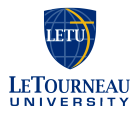Below is a summary of the abstract you submitted. Presenting author(s) is shown in bold.
If any changes need to be made, you can modify the abstract or change the authors.
You can also download a .docx version of this abstract.
If there are any problems, please email Dan at dar78@pitt.edu and he'll take care of them!
This abstract was last modified on March 19, 2021 at 9:38 a.m..

Phage Nikao was discovered and isolated, using Mycobacterium smegmatis mc2-155 as the host bacterium, in the Fall semester of 2020. The Nikao genome was sequenced, and a team of biology students annotated the genome in the Spring 2021 semester. During the annotation process, it was observed that Phages Nikao and Enkosi have a unique DNA region of approximately 2,750 base pairs that is not found in any other phages by PhagesDB and NCBI blasts. Intrigued by this unique gene and its surrounding sequence, research was focused on identification of the organism(s) the Major Facilitator Superfamily (MFS) transporter gene may have been acquired from and the function of this rare gene within bacteriophage. Employing HHpred, the gene function was determined to be a MFS transporter.
NCBI BlastP results returned only hits in Phage Enkosi and numerous bacterial species. Phage Enkosi was found in 2014 in South Africa, and Phage Nikao was found in the Fall of 2020 in Texas. Because these phages were isolated in such geographically remote areas and six years apart, it is plausible that Enkosi and Nikao acquired this unique DNA sequence from the same species of soil-dwelling bacteria. Interestingly, NCBI BlastN results identify several diverse bacterial species having this MFS transporter gene, including Rhodococcus rhodochrous and various Streptomyces species.
This study will discuss Bioinformatics investigatory attempts elucidate the organism(s) this unique chromosomal region may have been acquired from by both Phage Nikao and Phage Enkosi.
